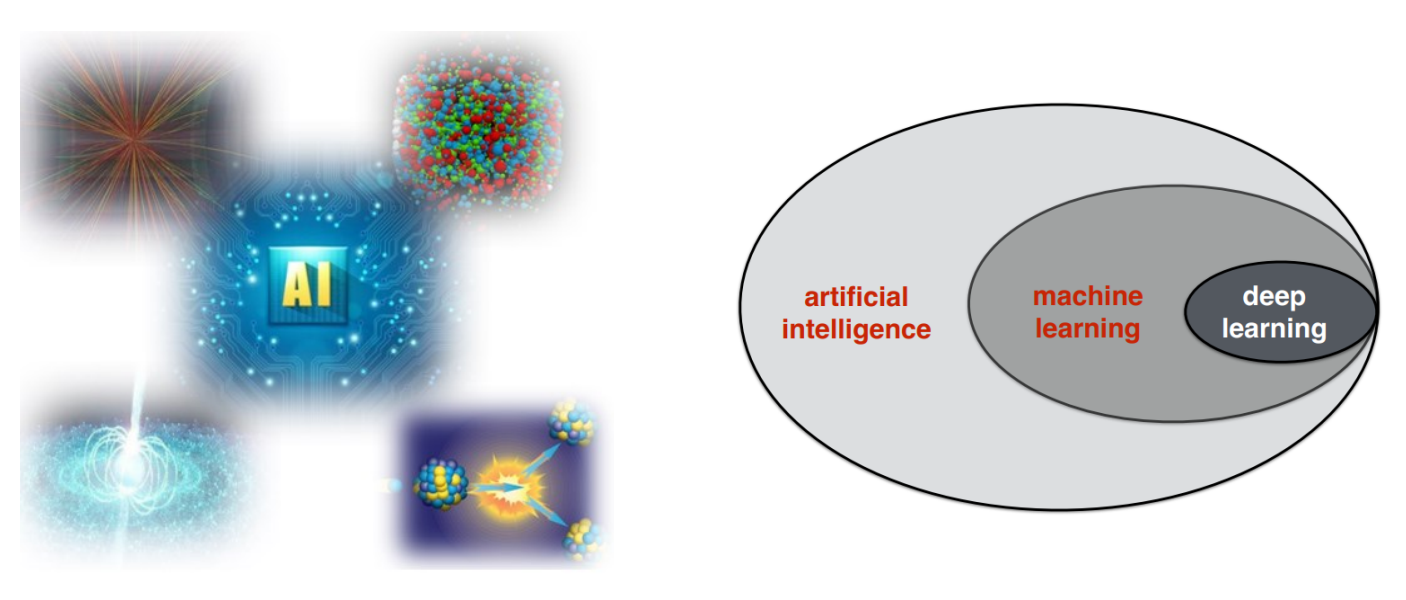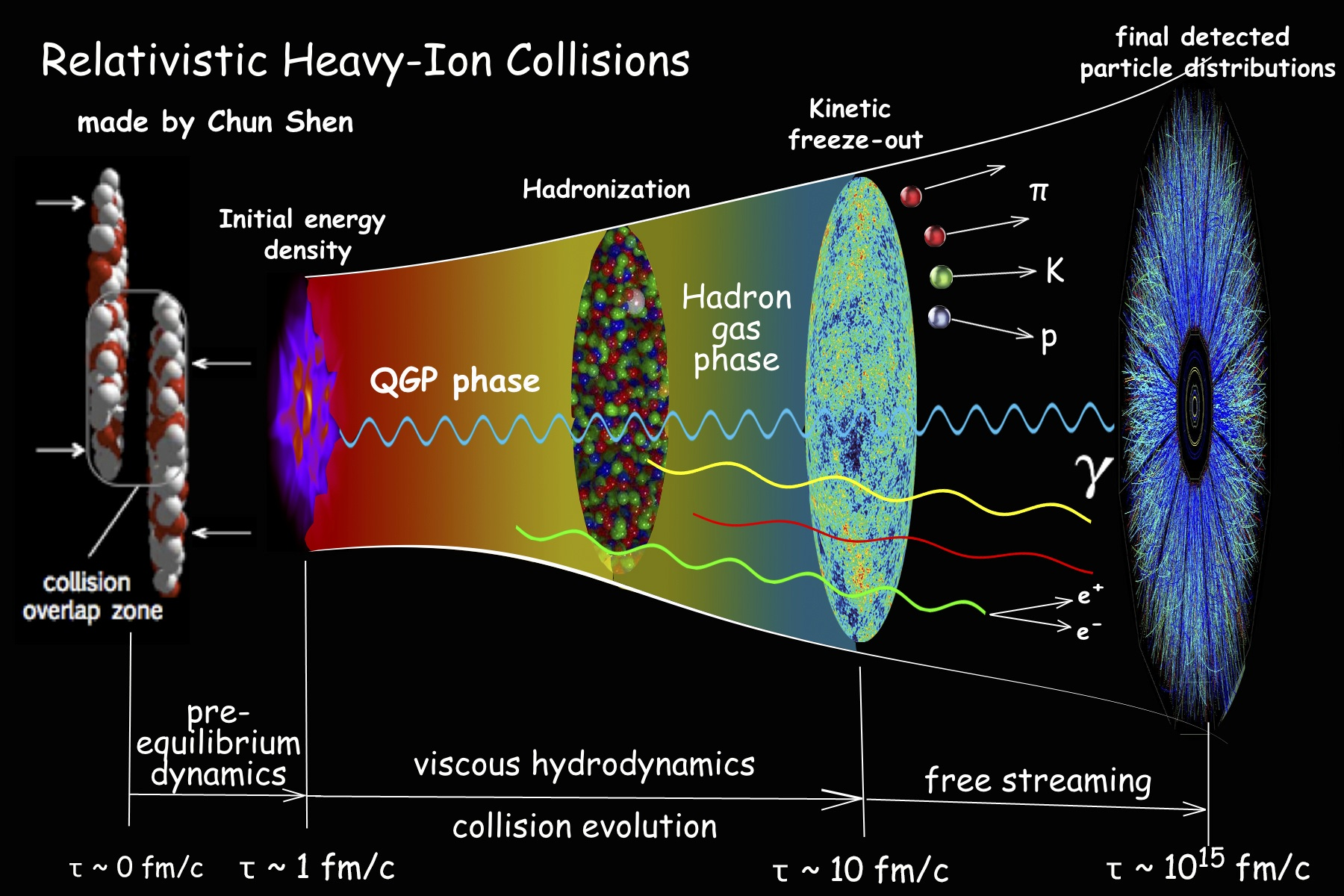About me
I am currently a joint-postdoc at Fudan University and RIKEN-iTHEMS and my main research interests are in the application of machine learning to inverse problems in nuclear physic. For more personal information check out my CV!The following is a brief introduction to my field of study, and I apologise for any errors or omissions that may be inevitable.
Machine Learning&Deep Learning&Nuclear Physics
- Machine Learning as a subset of Artificial Intelligence has been successfully used in a wide range of research fields. For more explanation about it check out the wiki.
- Nuclear physics, a fundamental discipline in physics, focuses on the microstructure as well as the fundamental properties of matter.In recent years, there has been an increasing sophistication of research that combines methodological applications of machine learning with nuclear physics.
- For paper related to this field you can refer to this website.

Heavy-ion collisions
- The heavy ion collision is an experiment in which two atomic nuclei are accelerated to near the speed of light to collide. The products of the final state are observed by detectors and physically analysed so that certain important physical information about the initial state and the reaction process can be deduced. Examples include the nuclear structure of the initial state, the equation of state in the high density region, and the jet quenching.
- At present, the world’s major high-energy heavy ion accelerators are the RHIC in the United States, the LHC in Europe and the HIAF in China (soon to be completed).
- For those interested in HICs, check out this review.
 Posted by Chun Shen.
Posted by Chun Shen.
Quantum Chromodynamics(QCD)
- QCD is a canonical theory describing the strong interaction of partons, which is a fundamental component of the Standard Model of particle physics.
- Current approaches to QCD are mainly divided into perturbative QCD (effective theory at high energy scales) and non-perturbative QCD (first-principles calculations at low energy scales).
- Milestones in the development of QCD can be viewed in the relevant literature by clicking on this link.
